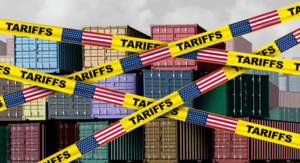
Impact of Climate Change
Impact of climate change reverberates globally, reshaping trade and economic landscapes. Extreme weather disrupts supply chains, harming trade routes and infrastructure. Mobility is curtailed, hindering commerce. Shifting climates and responsive policies redefine comparative advantages, endangering climate-dependent economies yet opening vistas for nations abundant in renewable resources.
Countries reliant on vulnerable sectors face risks, while those endowed with ample wind, sunlight, and critical minerals for clean infrastructure flourish. This dynamic alters economic trajectories, prompting a necessary recalibration of trade strategies.
Adapting to climate-induced transformations becomes imperative, steering nations towards sustainable practices and fostering novel economic prospects in the midst of environmental challenges.
Table of Contents
Impact of Climate Change
The impact of climate change resonates profoundly across agriculture, manufacturing, and tourism sectors. Rising temperatures and altered precipitation damage agricultural output, escalating food prices and disrupting trade.
Manufacturing, reliant on climate-sensitive inputs, faces supply chain disruptions and productivity loss due to extreme heat. Similarly, tourism suffers immediate damage from extreme events and gradual shifts, impacting destinations and livelihoods. Ocean warming hampers fisheries, challenging food security and trade.
Developing economies heavily reliant on agriculture, like those in sub-Saharan Africa and South Asia, bear the brunt. The impact of climate change on these sectors signals a need for adaptive strategies and international collaboration amidst the changing climate scenario.
1. Agriculture
Changes in climate, particularly the impact of climate change, trigger severe repercussions for agriculture and food security. Temperature shifts lead to heatwaves, land degradation, and altered precipitation levels, causing droughts and water scarcity. These adversities disrupt agricultural output, hike food prices, and impact trade and manufacturing reliant on climate-sensitive resources.
Nations in sub-Saharan Africa and South Asia, heavily reliant on agriculture and exports, face heightened vulnerability due to the impact of climate change. Climate-induced concerns worsen food insecurity, prompting export restrictions during crises, as witnessed with India’s wheat ban in 2022.
Ocean warming and acidification further jeopardize fisheries, disrupting ocean trade and food supply chains, hitting rural fishers and related livelihoods hard. These compounding effects demand urgent attention to safeguard global food systems.
2. Manufacturing
As temperatures surge due to the impact of climate change, multifaceted disruptions hit manufacturing supply chains. Transportation and agricultural inputs suffer, diminishing productivity as workers battle heat exhaustion, causing equipment malfunctions and reduced work hours. This hampers output, amplifying vulnerabilities in supply chains.
Elevated temperatures also inflate trade expenses, driven by heightened cooling costs in storage facilities. This compounding impact of climate change leads to production shortages, exacerbating fragility within supply chains.
3. Tourism
Extreme climate events and the impact of climate change, along with gradual climatic shifts, disrupt tourism significantly. Immediate damage to infrastructure and long-term changes lessen destination allure, impacting visitor numbers over time.
Thailand saw a substantial drop in tourists post-2003 tsunami, leading to employment declines. Portugal continues facing tourism setbacks due to ongoing wildfire damage, a direct consequence of the impact of climate change. Temperature shifts and rising sea levels alter landscapes, affecting ski resorts reliant on consistent snowfall and seaside destinations threatened by ecosystem damage, like Australia’s Great Barrier Reef.
These changes jeopardize the appeal of these destinations, highlighting the intricate link between climate-induced alterations and the vitality of the tourism sector.
Bottom Line
The multifaceted impacts of climate change on tourism, agriculture, and manufacturing reverberate across global economies. Damaged agricultural outputs and disrupted supply chains inflate food prices, particularly affecting vulnerable regions reliant on exports. Manufacturing suffers from productivity losses due to heat stress, escalating costs, and supply chain disruptions.
Meanwhile, tourism faces immediate disruptions and long-term declines, altering destinations’ appeal. Climate-induced upheavals in these sectors highlight the urgent need for adaptive strategies to mitigate far-reaching economic ramifications.







